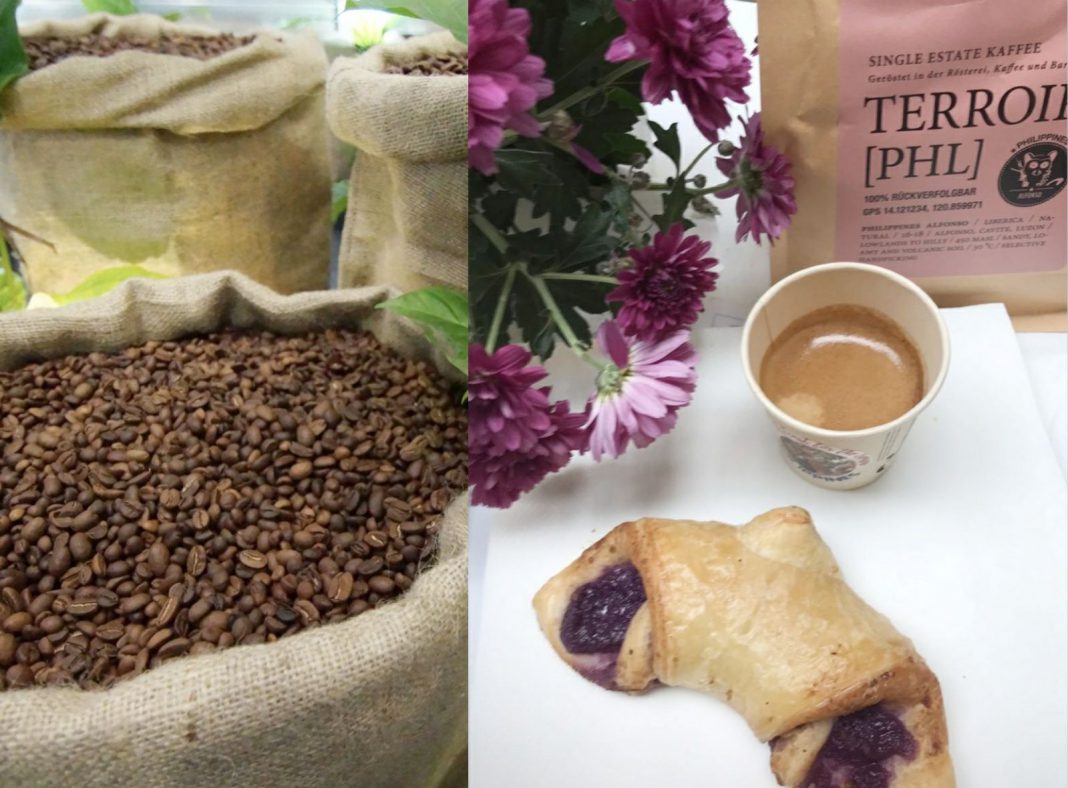In photo: Blaser Café Kapeng Barako with ube croissant
Blaser Café, one of the oldest coffee traders (since 1922) and well-established coffee roaster in Switzerland, added Philippine Liberica coffee beans aka “Kapeng Barako” in their Terroir line.
The term “terroir”, which originally comes from viticulture, is now also used in the coffee industry. A significant part of the character of a coffee can be traced back to its origin. It is the terroir that gives coffee its complexity. The soil and the climatic conditions shape its aroma, its acids and thus the entire profile of a coffee.

The Terroir line from Blasercafé in Bern responds to this awareness that the cherries of a coffee plant cannot thrive in exactly the same way in another location. On the package, the GPS coordinates of the respective plantation indicate where the beans come from, and thus their origin is 100 percent traceable.
In the case of kapeng barako, the Philippine Liberica beans is traced back to the town/ municipality of Alfonso, Cavite. The ground on which the trees in Alfonso grow is enriched volcanic soil from the nearby Taal volcano. Fortunately, Alfonso was spared from the effects of the volcanic eruption in January 2020.
The Terroir line is roasted on a Ghibli profile roaster from Coffeetech located in the Rösterei Kaffee in Bern, Switzerland. This allows small batches of coffee beans to be roasted to profile. The roasting time and the roasting curve (temperature curve) can be defined according to the origin and variation of the beans by a computer software. In the case of Liberica beans, it was roasted at a medium temperature that results to sweet, creamy, and juicy mouthfeel with rum, dried fruits, and brown sugar notes. Kapeng Barako is recommended to be served as espresso or black and prepared using Bialetti-Kocher, espresso machine, or fully automatic coffee machine.
Every cup of Philippine Liberica coffee helps support small coffee farmers, particularly in the provinces of Batangas and Cavite where the majority of this coffee is grown. The Philippine – EFTA Free Trade Agreement enables duty free importation of coffee beans to Switzerland.
A soft launch was held on 22 October together with Swiss media and free tasting during the 2021 Fernweh Festival. Blaser Café’s Terroir PHL will be available throughout Switzerland starting December. Mainstreaming of Philippine coffee in Switzerland was a joint effort of Le Café Filipina, Blaser Café Suisse, and the Philippine Embassy in Bern – Department of Trade and Industry.














